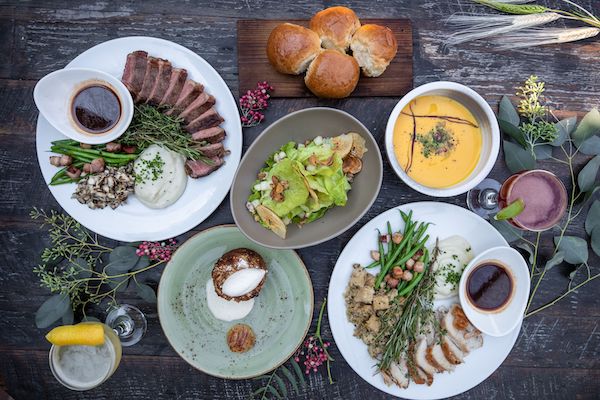Corporate Event Catering Services – From Casual Lunches to Formal Dinners
Corporate events often serve as pivotal moments for companies, whether celebrating achievements, fostering team spirit, or engaging with clients. Catering plays a crucial role in these events, ranging from casual lunches to formal dinners, each tailored to meet specific objectives and enhance the overall experience. Corporate event catering encompasses a wide spectrum of services designed to cater to varying needs and preferences. From small team meetings to large-scale conferences, the catering service must align with the event’s purpose, atmosphere, and attendee expectations.
Types of Corporate Events
Casual Lunch Meetings – Often held within the company premises or nearby venues, casual lunch meetings aim to facilitate discussions in a relaxed setting. Catering for these events typically includes buffet-style options or boxed lunches for convenience and efficiency. The menu may feature a variety of salads, sandwiches, wraps, and beverages, catering to diverse dietary preferences.
Networking Receptions – These events focus on building professional relationships and may occur during conferences, seminars, or after-hours gatherings. Catering for networking receptions emphasizes finger foods, hors d’oeuvres, and interactive food stations. These offerings encourage mingling while ensuring guests have easy access to refreshments and Book Now.
Formal Dinners and Gala Events – Celebratory occasions such as annual galas, award ceremonies, or corporate anniversaries call for elegant dining experiences. Fine dining catering services are essential here, featuring plated meals, multiple courses, and sophisticated presentations. The menu often includes gourmet dishes prepared with premium ingredients, complemented by a selection of wines and desserts.
Customizing the Catering Experience
Successful corporate event catering goes beyond serving food it involves understanding client preferences, dietary restrictions, and the event’s logistics. Catering companies often collaborate closely with event organizers to create tailored menus that reflect the company’s ethos and the event’s theme. Personalization extends to décor, service style, and even branded elements to enhance corporate identity.
Key Considerations in Corporate Event Catering
Menu Diversity and Dietary Accommodations – Offering a diverse menu ensures inclusivity, accommodating various dietary needs such as vegetarian, vegan, gluten-free, or allergen-free options. This approach ensures all attendees can enjoy the culinary experience without limitations.
Service Excellence – Professional catering services prioritize seamless execution, from timely food delivery to attentive service during the event. Trained staff members contribute to a positive guest experience, ensuring everyone feels valued and attended to throughout the event.
Flexibility and Scalability – Catering services must adapt to event dynamics, whether scaling up for large conferences or adjusting menus for last-minute changes. Flexibility in service offerings allows organizers to navigate unforeseen circumstances without compromising quality.
The Impact of Quality Catering
Beyond nourishing guests, quality catering enhances the overall event experience, leaving a lasting impression on attendees. Well-executed food and beverage services contribute to the event’s success, fostering positive interactions and reinforcing the company’s professional image.
Corporate event catering serves as more than a logistical service it shapes the atmosphere, facilitates networking, and aligns with organizational goals. Whether hosting a casual lunch, networking reception, or formal dinner, choosing the right catering service ensures that every aspect of the event contributes to its success. By focusing on quality, customization, and attentive service, companies can elevate their corporate events into memorable and impactful occasions.
